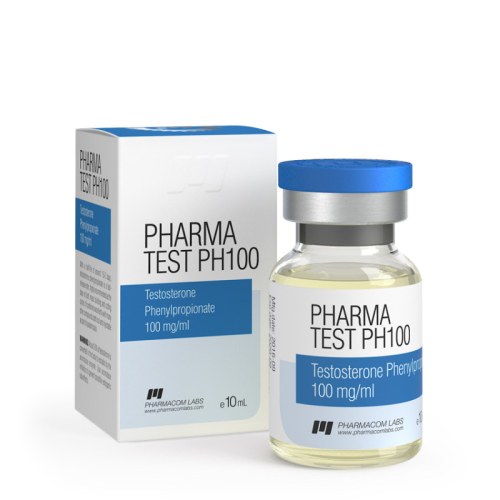PHARMATEST PH 100
- Brand: Pharmacom Labs - US
- Product Code: PHARMATEST PH 100
- Availability: In Stock
-
$58.00
ACTIVE HALF-LIFE
2-3 days
CLASSIFICATION
Anabolic Steroid
DOSAGE
Men 300-700 mg/week
ACNE
Yes
WATER RETENTION
Low
HBR
No
HEPATOTOXICITY
No
AROMATIZATION
Yes
CARRIER OIL
Grapeseed Oil
MANUFACTURER
Pharmacom Labs - US
WAREHOUSE
USA Warehouse 4
SUBSTANCE
Testosterone Phenylpropionate
,
PHARMA TEST PH100 (Testosterone Phenlypropionate) is regarded as one of the most effective anabolic steroids for building mass. It is highly recommended as a foundation for both bulking and cutting cycles. Testosterone plays a crucial role in promoting overall health and well-being, enhancing libido, boosting energy levels, strengthening the immune system, aiding in fat loss, helping to gain and maintain lean muscle mass, preventing osteoporosis, and potentially reducing the risk of heart disease. It pairs well with various other compounds, both oral and injectable, as part of a powerful stacking regimen.
Although its half-life is slightly longer at about 1 to 1.5 days compared to PHARMA TEST P, this product exhibits superior characteristics and biological effectiveness. With a half-life of approximately 2 to 3 days, it is classified as a fast-acting ester, making it ideal for shorter cycles and minimizing water retention.
Synthetic testosterone was first created in 1935 by German biochemist Adolf Butenandt and Swiss chemist Leopold Ruzicka, both of whom received Nobel Prizes for their contributions.
Testosterone is the primary male sex hormone that plays a vital role in the development of the testicles and prostate, significantly influencing muscle mass, bone density, and strength. Additionally, it contributes to numerous bodily functions such as overall health, well-being, increased libido, energy levels, immune function, osteoporosis prevention, and potential heart disease protection. Research indicates that maintaining elevated testosterone levels in older men can enhance various factors that may lower cardiovascular risk, including increased lean body mass, reduced visceral fat, and improved cholesterol and blood sugar levels. Testosterone not only delineates gender differences but also regulates thromboxane A2 receptor populations in megakaryocytes and platelets, thus influencing platelet aggregation. It is associated with behavior, mood, and even relationship choices. Furthermore, studies indicate that testosterone impacts cognitive abilities, particularly attention, memory, and spatial skills. Initial findings suggest that low testosterone levels may be linked to cognitive decline and a higher risk of Alzheimer's disease, supporting its use in anti-aging treatments.
Testosterone is particularly popular among athletes due to its capacity to significantly enhance muscle mass and strength. As a naturally occurring hormone, it remains the most commonly utilized anabolic steroid, serving as the cornerstone of various cycles and stacks.
In bodybuilding, testosterone is predominantly administered as an injectable ester or suspension owing to its low oral bioavailability and the challenges posed by high-dose transdermal or sublingual applications. All forms of testosterone function similarly: the active ingredient testosterone plus an ester that determines the rate of release and the duration of its active effects. In brief, long esters release testosterone slowly into the bloodstream, maintaining stable hormone levels over time without causing fluctuations.
It's important to note that around 5% of testosterone in men is converted to the more potent androgen dihydrotestosterone (DHT) via 5α-reduction. Additionally, about 0.3% of testosterone is transformed into estradiol (the main female sex hormone) through the action of aromatase, an enzyme found in the brain, liver, and fat tissues. Therefore, it is essential to take precautions to mitigate potential side effects. We recommend conducting blood tests and using aromatase inhibitors during your cycle if needed (anastrozole is preferred) and including selective estrogen receptor modulators (SERMs), such as clomiphene or toremifene, during post-cycle therapy (PCT).

